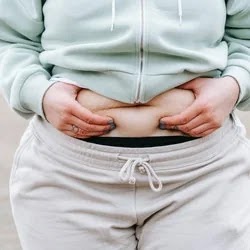Dietary fats: good and bad, everything you need to know
Dietary fats are the main source of energy for the body. They help the body function efficiently and are essential for building and maintaining healthy cells and tissues. However, dietary fats can also have a negative impact on weight and health if eaten in excess. There are two main types of dietary fat: healthy fats and unhealthy fats.
Big Dietary fats mess:
Most of us now know that humans need fats. Dietary fats give vitality and guarantee directed admission and handling of vitamins and follow components. The fat-soluble vitamins A, D, E, and K cannot be ingested by our body at all without the assistance of fats.
Indispensable: some Dietary fats (omega-3, omega-6) are essential, i.e. the body cannot produce them itself – getting fats from food is, therefore, the only option.
Dietary fats are NOT equal to fat – there are (good)and(bad) fats.
Good fat products: https://amzn.to/35cPzEO
Dietary fats are required for crucial forms such as brain, eye, and heart work, as well as development and advancement.
If too much fat, especially too much bad fats, is consumed, this can lead to heart disease, cancer, and chronic diseases. Attention: the body deposits fat not only under the skin but also in the abdominal cavity, liver, pancreas, heart, and other internal organs. Possible consequences: inflammation, diabetes, obesity, fatty liver, liver fibrosis.
What are good Dietary fats?
Above all, all those fats that are rich in unsaturated fatty acids are considered beneficial. These are acids, the components which the body cannot produce itself. These unsaturated fats are therefore also called essential or vital fatty acids. Such fats are used for construction.
Good fat products: https://amzn.to/35cPzEO
reconstruction of body cells and one could also say:
Many unsaturated fatty acids are found, for example, in high-Dietary fats fish, such as mackerel, halibut, or pollock. In addition, they are present in some plants or vegetable oils.
Here are proven foods that contain healthy Dietary fats and therefore should be consumed with preference:
- Avocado, peas, figs, beans.
- Sunflower, pumpkin seeds, flaxseed, chia seeds,
- Walnuts, Almonds, Macadamia, Cashews, Hazelnuts,
- herring and fish and Mackerel and salmon,
- Eggs (contain saturated and unsaturated fatty acids),
- cold-pressed olive oil, hemp oil, and linseed oil.
A word about saturated fatty acids: these are mainly found in butter, meat, sausage, and dairy products. However, saturated fats are far from as bad as many people believe. Experts believe that saturated fatty acids, in moderate measures, do not hurt health and well-being. On the contrary: they are even needed as an energy supplier and messenger in the body.
But there must be bad fats when everyone in the world is talking about them, right? Well, here they are… Good fat products: https://amzn.to/35cPzEO
bad Dietary fats - The genuine guilty parties!
Trans fats are especially found in highly processed foods. They are formed during the industrial hardening of vegetable oils, but also as a result of the strong heating of polyunsaturated fatty acids during frying and deep-frying. Trans fatty acids increase the risk of heart disease and reduce the positive HDL cholesterol content in the blood, while at the same time providing more harmful LDL cholesterol.
Here are the main sources of bad Dietary fats:
- French fries, chips, burgers, pizza, popcorn.
- all fried foods,
- Pieces of bread, sauces, dips,
- Donuts and Berliners (pancakes),
- Cookies and cakes and chocolate,
- Puff pastry and croissants,
- Ready-made soups, ready meals
- Muesli bars, breakfast cereals.
Good & Bad Dietary fats - practical tips
- Use cold-pressed oils from controlled cultivation, good examples are linseed oil, olive oil, hemp oil, and sesame oil (palm oil, rapeseed oil, and soy products I can NOT make a recommendation).
- Cook as little prepackaged food as possible and avoid ready-made food from the supermarket.
- Read the information on the label and make sure that as few additives and processing steps as possible are included in the respective product.
- Avoid modern fast food and prepare your healthy food at home.
- Relying more on unprocessed nutrition, more raw juices, or even the Paleo diet can help.
- Avoid sauces, dips, and also conventional yogurts. The latter you can make yourself from cottage cheese or cottage cheese with fresh fruits, nuts, and oatmeal.
Replacing Bad Dietary fats - 5 Tips
Trust in the long-term effect of your habits on your diet and recognize that your current patterns determine your attitude to life tomorrow (see 40 Nutrition Tips). Finally, let me give you 5 practical tips to replace bad fats with good fats and thus support your health.
1. Find out about foods.
that make you full to avoid cravings for sweets or fast food. Good examples are potatoes, legumes (lentils, peas, beans), lean cottage cheese, nuts, dried fruits, and, last but not least, bananas.
2. be cautious with butter supplements.
Butter is much less harmful than its substitutes, such as margarine or the like. Instead of butter, you can also use avocado puree, delicious horseradish cream, organic almond cream, or olive oil.
3. Reduce sausage and meat.
Even if many types of cold cuts cause hormonal reactions of "joy", you are well-advised to limit them and replace them, for example, with porridge, sprout salad, or herbal spread.
4. Eat two to three fish dishes a week.
A portion of fish weighs about 150g and is about the size of a hand. Fish not only has healthy fats but is also known as an excellent source of protein.
5. Healthy Snacks: Cakes,
pastries and cookies are the main sources of bad fats. Seeds, nuts, smoothies, spelled / black bread as well as fruit and vegetable salads are the healthy alternative.
Good fat products: https://amzn.to/35cPzEO

